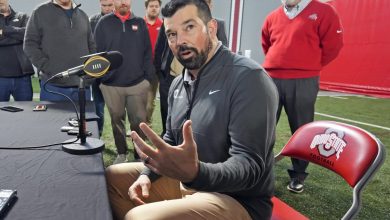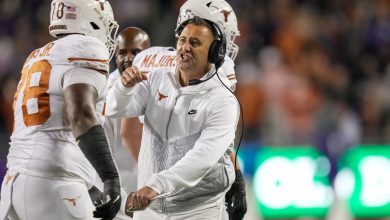The impact of Bo Davis’ departure from LSU for the New Orleans Saints on LSU Tigers football

The departure of defensive line coach Bo Davis from LSU football for the New Orleans Saints represents a significant shift in the coaching staff of the Tigers and could have long-lasting effects on the program, especially in the areas of recruiting, player development, and defensive line performance. With the LSU Tigers being a program historically built on strong defensive play, Davis’ exit is a crucial moment in the transition period under head coach Brian Kelly. This article will explore the various aspects of Davis’ departure, including his impact at LSU, the implications for recruiting, the defensive line’s development under his tutelage, and how the coaching staff may respond to fill the void left by his exit.
Bo Davis’ Legacy at LSU: An Overview of His Impact
Bo Davis joined LSU’s football program as the defensive line coach in 2022 under head coach Brian Kelly. His hiring came at a time when LSU was transitioning between coaching staffs, as Ed Orgeron’s tenure had come to an end after the 2021 season. Kelly, who brought in a new coaching staff with a focus on revitalizing LSU football, saw Davis as an essential piece of the puzzle.
Davis brought a wealth of experience to LSU, having coached at several high-profile programs, including Alabama and Texas, where he had developed a reputation for his ability to coach elite defensive linemen. His experience at Alabama, particularly during their national championship-winning seasons, made him one of the most respected defensive line coaches in college football. This pedigree made Davis an excellent choice to help reestablish LSU’s defensive identity, which had been inconsistent in recent years.
In his first season with LSU in 2022, Davis had an immediate impact on the Tigers’ defensive line. He inherited a unit that had struggled at times in previous seasons but quickly got them to play at a higher level. Under Davis’ coaching, LSU’s defensive line improved in both pass rushing and run defense. The Tigers were able to generate pressure on opposing quarterbacks, and their defensive front became a more formidable force in the SEC. Davis’ ability to develop talent was evident as several players, such as Maason Smith, Makai Wingo, and BJ Ojulari, showcased improved play and NFL-caliber potential.
Notably, Davis’ ability to work with both young players and experienced upperclassmen helped LSU maintain a strong presence on defense. His contributions were essential in the Tigers’ victory in the Citrus Bowl against Purdue, where LSU’s defensive line dominated the line of scrimmage, helping secure the win. In just one season, Davis helped to improve a defensive line that had been a weak point under the previous coaching staff. His success in developing talent and creating a physical, aggressive defensive line set high expectations for his future at LSU.
Bo Davis’ Role in Recruiting
One of the most significant impacts of Bo Davis’ tenure at LSU was his recruiting ability. As a recruiter, Davis was instrumental in securing top defensive line prospects, both nationally and regionally, for the Tigers. His reputation as a top-tier defensive line coach, especially after his success at Alabama, made him an attractive figure for high school recruits looking to make an impact at the collegiate level.
Davis had the ability to connect with recruits on a personal level, understanding what it takes to succeed at LSU and in the SEC. His track record of developing players into NFL-caliber talent made him a powerful tool in recruiting battles with other top programs. He was responsible for some key additions to the Tigers’ defensive line class, including high-profile recruits such as Mason Smith, who was widely regarded as one of the best defensive tackles in the country when he committed to LSU. Under Davis, LSU’s defensive line gained a reputation for being a position of strength, and recruits wanted to be part of that legacy.
Moreover, Davis’ coaching experience at prestigious programs like Alabama and Texas gave him the necessary clout to land top-tier talent. His ability to recruit players who could thrive in the SEC and beyond was one of the main reasons he was brought to LSU. With Davis leaving the program, LSU loses a highly regarded recruiter who was poised to help the Tigers consistently sign elite defensive line talent. The potential loss in recruiting momentum could be felt immediately, particularly when it comes to the upcoming 2025 and 2026 recruiting classes.
While LSU is still one of the most prestigious programs in college football and will undoubtedly continue to attract top recruits, Davis’ departure could open the door for rival schools to make inroads in Louisiana and other recruiting territories that Davis helped LSU dominate. His connections in Texas, Alabama, and Louisiana were instrumental in securing high-level defensive linemen, and losing that presence could give competitors a chance to capitalize on LSU’s uncertainty in the position.
The Impact on Defensive Line Play
Under Bo Davis, LSU’s defensive line showed significant improvements. Davis is known for his emphasis on discipline, technique, and creating a relentless, aggressive front. His philosophy is centered around getting defensive linemen to play with proper hand placement, leverage, and relentless pursuit of the quarterback. This approach paid off in 2022 and 2023, as LSU’s defensive line became one of the more dominant units in the SEC.
Key players such as Maason Smith, who was poised to become one of the top defensive tackles in the country, were greatly affected by Davis’ coaching. Smith’s development under Davis in his early years at LSU showcased how effective Davis could be in refining and enhancing the skills of his players. Additionally, players like BJ Ojulari, who entered the program with significant potential, thrived under Davis’ tutelage and improved their draft stock, which had major implications for LSU’s overall success on defense.
Without Davis, LSU’s defensive line could see a drop-off in performance. The Tigers will need to rely on the continuity of the players already on the roster, who must adapt to a new voice in the room. The defensive line is one of the most physically demanding units on the field, and any shakeup in coaching could disrupt the unit’s chemistry and effectiveness.
Furthermore, the team will need to find a new coach who can build on the strong foundation that Davis set. The defensive line is crucial for LSU’s success in the SEC, as dominating the line of scrimmage is often the key to winning games in the conference. Whether it’s pressuring the quarterback or stopping the run, the Tigers must find a coach who can replicate the success that Davis brought to the program.
The Coaching Transition: Who Will Replace Bo Davis?
With Davis departing for the New Orleans Saints, LSU will need to quickly fill the void left on the defensive coaching staff. The transition of hiring a new defensive line coach is an important one, as the defensive line is one of the most critical components of LSU’s defensive success. The team must find a coach who can build on the program’s current success and continue to develop the players already on the roster while also securing elite defensive line recruits.
Several potential candidates will be considered to replace Davis, both internally and externally. The most immediate option may come from the current LSU coaching staff. LSU has several coaches with experience working on the defensive side of the ball, including assistants who may be capable of taking over the defensive line position. However, the challenge lies in ensuring that the new hire can continue the work Davis began and bring the same level of intensity, discipline, and development to the position.
One possible candidate could be LSU’s current defensive coordinator, Matt House, who has experience coaching linebackers and defensive backs. House’s familiarity with LSU’s defensive scheme could make him a natural fit to oversee the defensive line on a more hands-on basis, but it would require him to relinquish some responsibilities and potentially alter his focus from defensive play-calling.
Another option would be to recruit an external candidate with a strong defensive background, particularly someone with a reputation for developing defensive line talent at a high level. LSU has the resources to bring in a coach who could maintain the Tigers’ defensive line dominance and continue their recruiting efforts.
Whoever LSU hires to replace Davis will need to quickly develop relationships with the current players and help ease the transition. They will also need to continue recruiting at a high level, as defensive line talent remains a key component of LSU’s overall success.
Long-Term Impact: The Future of LSU Football
The impact of Bo Davis’ departure from LSU will undoubtedly have long-term ramifications, especially in terms of recruiting and defensive line play. However, LSU is a program with a strong football tradition and a powerful brand. While Davis’ exit is a setback, LSU will continue to attract top talent and remain a contender in the SEC and national rankings.
The Tigers will need to adapt to this coaching change and ensure that their defensive line remains one of the strongest in the conference. While Davis’ departure is a blow, LSU’s overall program stability and commitment to excellence should help them weather the transition and continue competing for championships. It will also be an important test for Brian Kelly, as he looks to build a program capable of sustaining success in a highly competitive SEC.
Ultimately, LSU’s ability to recruit top defensive line talent and develop that talent will determine the long-term impact of Davis’ departure. If LSU can quickly fill the void and continue to develop elite players on the defensive line, the Tigers will remain a force to be reckoned with in the SEC. If not, it may be a more difficult road ahead as the team adjusts to a new defensive line coach and a changing coaching landscape.









